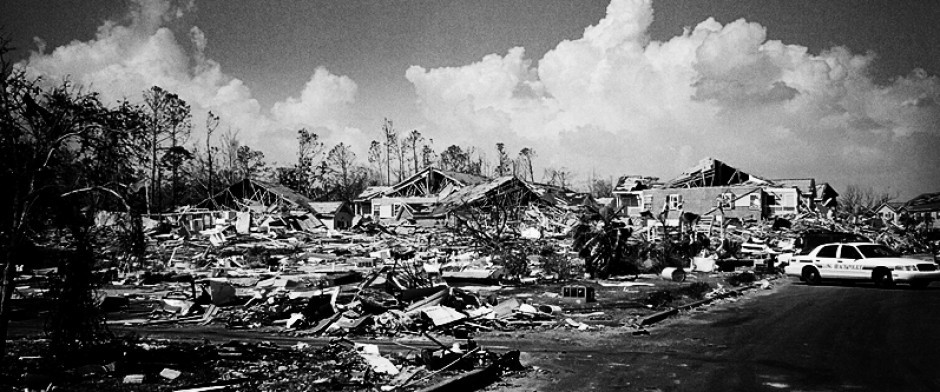America’s densely populated urban areas may soon become lethal breading grounds for the rapid transmission of deadly diseases once easily treated and nearly eradicated in the West. Some of the most dangerous reemerging diseases to appear in the US are antibiotic resistant strains of tuberculosis. To date, the worst of these is Extensively Drug-Resistant Tuberculosis or (XDR-TB). XDR-TB is an extremely deadly form of tuberculosis caused by bacteria that are resistant to even the most effective anti-TB drugs. XDR-TB outbreaks have been showing up in a growing number of countries, to include most recently, South Africa. XDR-TB in particular has the potential not only to quickly kill, even with aggressive and expensive long-term treatment, but could mutate further into a totally drug-resistant super disease capable of killing tens of millions of people. Readers should remain vigilant, learn how to mitigate TB risks, and have a plan for reacting to outbreaks if you must live in an urban environment.
The United States could become ground zero for this reemerging epidemic very soon. Los Angeles has just reported an outbreak of drug-resistant tuberculosis [http://losangeles.cbslocal.com/2013/02/21/thousands-may-have-been-exposed-to-deadly-tb-epidemic-downtown/] amongst the city’s poor and homeless. If XDR-TB gets into the general population of cities like Los Angeles, state agencies and medical facilities would be overwhelmed. Further, the manner of XDR-TB transmission would make normal day to day activities in cities where close proximity is the norm a lethal gamble. As XDR-TB and other drug resistant diseases continue to spread and mutate, it is only a short matter of time before America’s cities are death traps.
The first key to protecting yourself and your family is that it is important to know the facts. TB infects one in three people in the world. However, it is only when the bacterium becomes active do people become ill with TB allowing the disease to be unknowingly transported and spread. Typically, a TB bacterium becomes active when a person’s immunity is compromised by an illness such as HIV, advanced age, or medical conditions. Tuberculosis is one of the world’s deadliest diseases. In 2011, nearly 9 million people around the world became sick with TB disease and about 1.4 million infected died. Further, TB is a leading killer of people who are HIV infected. A total of 10,528 TB cases (a rate of 3.4 cases per 100,000 persons) were reported in the United States in 2011.
The general symptoms of TB disease include feelings of sickness or weakness, weight loss, fever, and night sweats. The symptoms of TB disease of the lungs may also include coughing, chest pain, and coughing up blood. Symptoms of TB disease in other parts of the body depend on the area affected. If you have these symptoms, you should contact your doctor or local health department.
Typically, TB can be treated with a course of four standard, or first-line, anti-TB drugs, but these are becoming more and more ineffective. This is the result of drugs being misused or mismanaged, often in the third world, causing multidrug-resistant TB (MDR-TB) to develop. MDR-TB takes longer to treat with second-line drugs, which are more expensive and have more side-effects. XDR-TB can develop when these second-line drugs are also misused or mismanaged and therefore also become ineffective.
XDR-TB, like other forms of TB is spread through the air. When a person with infectious TB coughs, sneezes, talks or spits, they propel TB germs, known as bacilli, into the air. This makes TB extremely dangerous in densely populated areas because a person needs only to inhale a small number of these to be infected. In fact, an outbreak of XDR-TB could potentially paralyze a city.
Treatment for MDR-TB and for XDR-TB are basically the same, but require the use of second-line drugs that are significantly more toxic than typical drugs used to treat normal TB. In fact, both types of resistant TB Infection will require extensive chemotherapy for up to two years. This toxic and aggressive treatment can cause a range of serious side-effects including hepatitis, depression and hallucinations. Patients are often hospitalized for long periods, in isolation and sometimes cannot tolerate the treatment resulting in a fatal TB infection. Further, it is critical to note that treating resistant TB is extremely expensive and could overwhelm health services. Specifically, second-line drugs are extremely expensive (up to 200 times higher than standard treatment drugs) and treatment often requires long term hospital inpatient care. If a large percentage of the population becomes infected with TB, hospitals simply would not have the bed space and insurance companies would go broke trying to pay for the treatments.
To protect yourself and your family, avoid close contact or prolonged time with known TB patients or people in general in crowded, enclosed environments like clinics, hospitals, prisons, or homeless shelters. If TB outbreaks become more common in your area, wearing a protective surgical mask and washing hands frequently will offer some protection. Also, limit travel to countries where TB is prevalent and make sure you get a TB test upon return. Further, avoid contact when possible with illegal immigrant populations as they are more prone to be infected with TB. Note, persons applying to enter the US with immigrant or refugee visas must complete a questionnaire about any symptoms of TB they may have and obtain a chest radiograph. If positive, the person submits sputum specimens for examination for TB bacteria. Persons identified as having infectious TB are not granted entry to the United States, until they have been treated. However, illegal immigrants by-pass this critical health barrier and regularly reintroduce a host of diseases once eradicated in the US. Considering the above, one’s best protection is to remain vigilant and avoid close contact with high risk populations.
By: Guiles Hendrik
Supporting Links:
http://www.who.int/mediacentre/news/releases/2010/drug_resistant_tb_20100318/en/index.html
http://www.cdc.gov/tb/publications/factsheets/treatment/drugresistanttreatment.htm
http://en.wikipedia.org/wiki/Extensively_drug-resistant_tuberculosis


